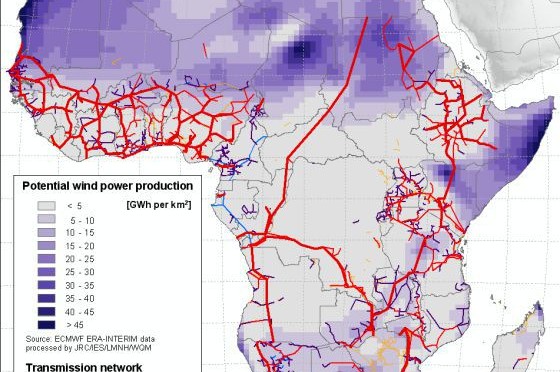Endorsers of the renewAfrica Initiative met with European Commission officials in Brussels to outline the master plan for a new financial tool supporting new renewable projects in Africa.
The future of Africa is at a crossroads in Brussels. Enel Green Power and other European players in the renewables sector all gathered on January 28 in Belgium’s capital to discuss progress on the renewAfrica Initiative, a broad call first issued last June in Rome for Europe to arrange a new type of financial tool supporting investment in Africa’s renewable energy projects.
Enel Green Power is among the endorsers and signatories of the appeal that also features other European utilities, universities and financial institutions. Back in Brussels, the meeting was hosted by the RES4Africa Foundation and saw the attendance of representatives from the European Commission, renewable energy providers, and international financial institutions, as well as prominent scholars and energy think-tanks.
“The renewAfrica Initiative aims to incentivize European investment in African renewable energy projects as it perfectly suits the ambitious European “Green New Deal” scheme fostering Europe’s prominence on the world stage, as addressed by the European Commission.”
– Antonio Cammisecra, President of the renewAfrica Initiative and CEO of Enel Green Power
Africa’s future is green
To this day, 600 million Africans – 48% of the continent’s population – still have no access to electricity.
For a continent in the midst of rampant urban and demographic growth, bridging the gap first means to couple current public investment with new private-based financing in order to hasten the current energy transition.
Estimates put the price tag at 65 billion Euros a year to guarantee every African has access to electricity by 2040, and this level of investment can’t be shouldered on nations alone.
Streamlining investments on sustainable development and the energy transition is a common goal for both Europe and Africa. By signing the 2015 Paris Climate agreement and its recent Green Deal scheme, the UE is at the forefront of global climate action. With this in mind, getting Africa on board is a strategic imperative.
“In order to put words into action and develop a Green Alliance overseas to fight climate change through development cooperation, the EU will need to take effective measures and the renewAfrica Initiative could fit the bill.”
– Antonio Cammisecra, President of the renewAfrica Initiative and CEO of Enel Green Power
A new tool for everyone
Recent research from the RES4Africa Foundation demonstrated how Europe fields a great number of tools that foster investment in renewable energy.
However, such variety and fragmentation prevent their exploitation in a concerted fashion, thus limiting the effectiveness of their actions. Concurrently, the research points out how a new kind of tool – capable of developing custom-made regulatory frameworks and policies – can offer both financing and de-risking that stand a good chance of increasing investment in the renewables sector.
“Meeting with renewAfrica to discuss new ideas in the context of Europe’s Green Deal is a real privilege. Our goal is to double our efforts to unleash the full renewable potential of Africa. This is a preliminary condition for the inclusive and sustainable growth of the entire continent and we really look forward to work with all interested parties in Africa’s energy transition process.”
– Koen Doens, Director General of DEVCO – The European Commission’s Directorate-General for International Cooperation and Development
RenewAfrica Initiative aims to create a fruitful dialogue with local governments, strengthening both institutions and businesses as it provides support for tenders and conferment while providing professional training to further develop the market. Therefore, this is an overarching, global approach, structured in a way to provide prompt financing to renewables projects that are currently outside the reach of support schemes.


